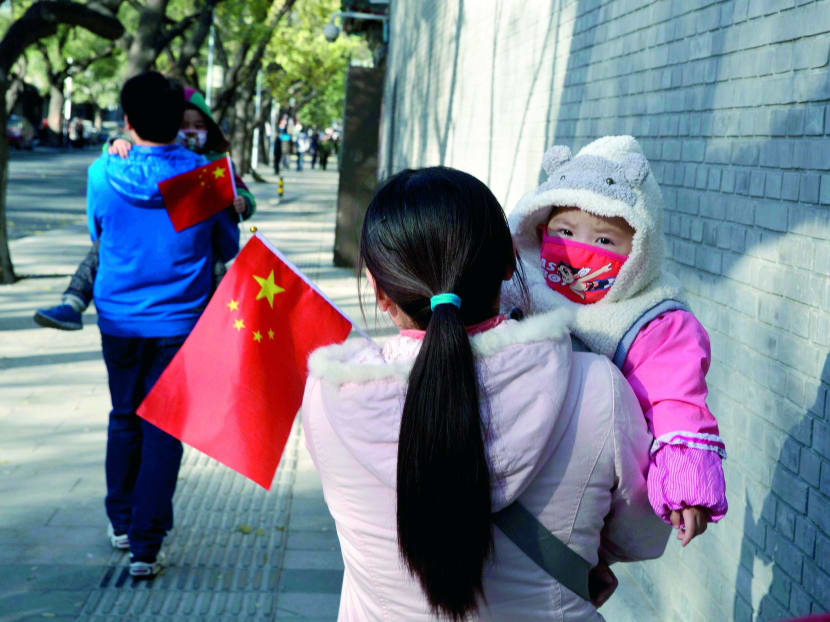Chinese officials call attention to baby, gender imbalances
BEIJING — For decades, most urban Chinese families could have only one child. Now, officials in China’s biggest city are telling young couples: Please have more children.

Some 15 million to 20 million Chinese parents will be allowed to have a second baby after the Chinese government announced in Nov last year that couples where one partner has no siblings can have two children, in the first significant easing of the country’s strict one-child policy in nearly three decades. Photo: AP
BEIJING — For decades, most urban Chinese families could have only one child. Now, officials in China’s biggest city are telling young couples: Please have more children.
Mr Fan Hua of Shanghai’s family planning commission said this week that far fewer people than expected had taken advantage of a recent rule change that lets more households bear a second child.
The Qianjiang Evening News quoted Mr Fan as saying that 90 per cent of the city’s women of child-bearing age were eligible for a second child under the change made in late 2013, but that only 5 per cent had applied. Shanghai officials urged more households to do so.
China’s birth rate is among the lowest of developing countries, nearly four decades after the country restricted most urban couples to having one child.
That aging society threatens to slow down China’s still booming economy and overload its pension system when too few workers will be supporting growing numbers of the elderly.
“It’s very clear that the next 10 to 15 years down the road will not be so good-looking,” said Mr Yong Cai, a sociology professor at the University of North Carolina at Chapel Hill. “China should have changed this policy at least 10 years earlier when the economic and social situation was quite different. My view is quite pessimistic, that the policy change announced last year was too little too late.”
The governor’s office of Shandong province, one of the country’s most populous, also called attention this week to the consequences of the one-child rule, noting that Shandong had about 20 per cent more men than women, according to the China Youth Daily newspaper. Many couples restricted to one child abort female fetuses until they have a male baby.
Such ominous figures have contributed to speculation that the Chinese government will further relax regulations on family sizes.
Many Chinese couples are refraining from having more than one child as education and other costs around the country soar, Yong said. Birth rates in neighboring Asian countries as well as in Hong Kong and Taiwan have also dropped. AP





